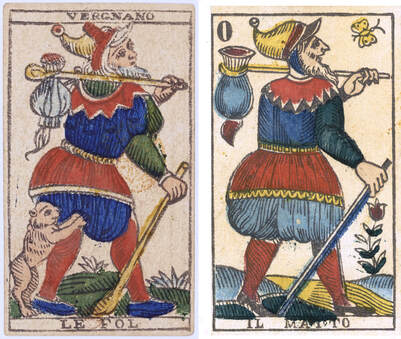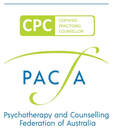 At this time of year I wanted to offer an alternative to new years resolutions and goal setting. Although many people find these helpful, for others they can be fuelled by shame and if unmet, inevitably a source of disappointment and self-judgement. What I’m offering here is a reflection on how an archetypal figure can be a guide to cultivating qualities that might support you in your relationship with the unknown. The concept of archetypes as developed by psychoanalyst Carl Jung, approaches archetypes as inheritances from ancestral memories that play a central role in shaping human behaviour and experience. Jung believed that archetypes were universal patterns or themes expressed through symbols, myths, and stories found in different cultures. Archetypes can be a useful tool for understanding the unconscious influences on human behaviour and for exploring the deeper meanings and motivations behind our actions and experiences. The fool archetype is a figure that appears in various cultures and literary traditions. In literature and mythology, the fool is often portrayed as a wise but unconventional figure who uses humour, wit, and absurdity to challenge social norms and conventions. Often associated with spontaneity, creativity, and being free from the constraints and expectations of society. A complex and multidimensional figure that embodies and expresses both wisdom and absurdity, mischief and paradox. The fool dimension of our own psyches merges the innocence of the child and the wisdom of the elder. Both draw on the capacity to perceive simply and purely, to be fully present to the moment and to all things arising, expressing and dissolving within it. The fool serves as a source of potential inspiration and insight for those who are willing to be in relationship with it. You might explore how you could approach this new year with an openness and curiosity towards the unknown or unfamiliar (setting aside any preconceptions or assumptions as if encountering it for the first time). Perhaps it might mean supporting yourself to go in a direction that may be less conventional than ones you would usually choose or taking a risk by beginning a new relationship, activity, role, journey or project where there are no guarantees of a preferred outcome. From the perspective of the Fool you may sense that you are embarking on an adventure into an expansive field of possibility and potentialities without any certainty or knowing. Where in your life are you already living the fool’s way of being in the world? Qualities of spontaneity, unconventional ways of thinking and/or being in the world (creative, visionary and/or non-conformist), humour, innocence merged with wisdom & a willingness to move into the unknown without certainty. What areas of your life could benefit from you living any of these qualities even more? It’s a natural part of being human to feel fear or uncertainty when faced with the unknown. The unknown can be intimidating because it heralds the possibility of change and the potential for things to unfold differently to what we had hoped for. It can also be scary when we feel like we have less control over a situation when we don't have all the information ahead of time. For many of us this can leave us feeling unsafe, activating our instinctual threat response (flight, flight, freeze or fawn) and learned survival strategies that have helped keep us safe in the past. Navigating unknowns can be particularly challenging as it brings us closer to uncomfortable feelings of insecurity, vulnerability and fears around whether we can survive/cope or adapt to what the unknown will ask of us. It’s important to first attend to any feelings of fear and cultivate a felt sense of safety and stability as a foundation to explore from through present moment sensory awareness (I’ve created a brief grounding through your 5 senses and the breath handout for you which can help you to do this). If you already are familiar with how to connect with what feels grounding, anchoring, stabilising and steadying for you, then you might also explore a “Don’t know” meditation as part of your fool’s entry into this new year. Don't know meditation "Don't know" meditation is a form of mindfulness meditation (from the Zen lineages) that involves gently repeating the phrase "Don't know". The idea behind "Don't know" meditation is to cultivate a sense of openness and curiosity by letting go of the need to know or understand everything. To cultivate these qualities we practice while noticing and allowing thoughts, feelings and sensations to come and go, without trying to label or judge them, gently repeating the phrase "Don't know”. This is one of many ways that might help you to cultivate a sense of acceptance towards your inner experience, support you to be more present in the moment and open up a little more to new experiences and perspectives that emerge. It doesn’t mean we forget everything we know or no longer interpret our inner and outer experiences, it just means we create more space around them. May your journey into the new year be filled with the spirit of the fool in whatever way feels most inspiring for you. Traveler, there is no road By Antonio Machado Traveler, your footprints are the only road, nothing else. Traveler, there is no road; you make your own path as you walk. As you walk, you make your own road, and when you look back you see the path you will never travel again. Traveler, there is no road; only a ship's wake on the sea.
0 Comments
Your comment will be posted after it is approved.
Leave a Reply. |
AuthorHi I'm Morgan. I’m a qualified and registered psychodynamic psychotherapist & meditation/mindfulness facilitator and mentor integrating depth psychology, trauma and attachment informed and compassion focused approaches. Disclaimer
The information provided in my writings are purely educational to support your mindfulness and/or self compassion practice and are not a substitute for therapy or medical advice. You, or anyone you are concerned about, are encouraged to seek professional support from qualified health care practitioners in your area. If you or the person you are concerned about appear at risk of self-harm or harm to others, please seek immediate assistance from your local emergency services, a registered mental health practitioner or organisation in your area or a crisis care helpline in your country. Archives |
Location & Contact
In person garden studio & clinic located in Narrabundah, Canberra, A.C.T, Australia
Online sessions via Zoom
I acknowledge the Ngunnawal people as the traditional custodians of this land on which we meet and pay my respect to the Elders of the Ngunnawal Nation both past, present and emerging. I acknowledge their continuing connection with and protection of culture, land and water.
 RSS Feed
RSS Feed
